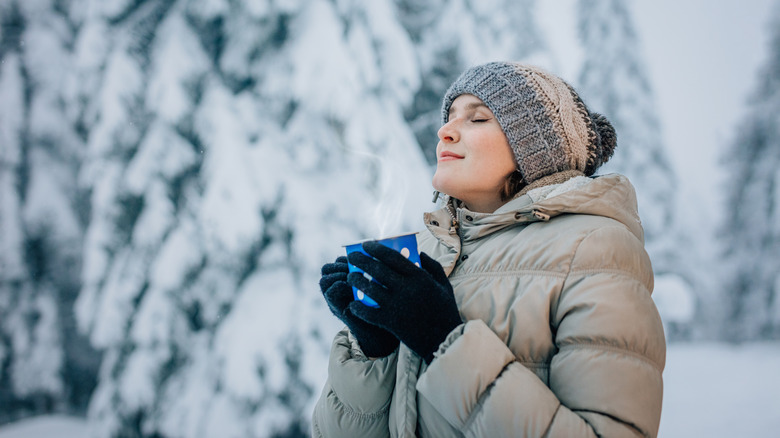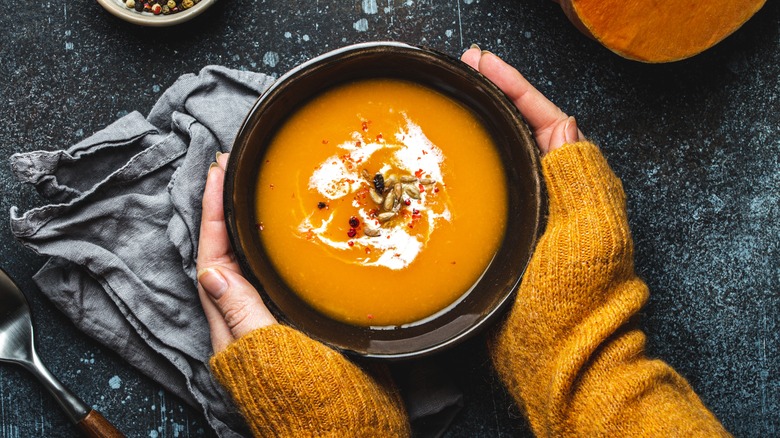Why Our Food Cravings Skyrocket When It's Cold Outside
Winter months typically bring you indoors, where you might turn to hot cocoa and warm banana bread to soothe your chilly insides. The holiday season doesn't help your cravings as you indulge in buttery baked goods and heaping servings of your favorite casseroles. Even seeing videos of winter themes cues your taste buds to prefer high-calorie foods, according to a 2022 article in Food Quality and Preference. This might trace back to our ancestors who found food to be more scarce in the winter months.
This isn't the only reason why you might crave more food when the mercury drops (via Everyday Health). Winter months also mean you're more likely to stay in to avoid the cold weather rather than hit the gym or other activities. Staying inside could make it that much more tempting to open up your pantry for snacks before bed. Your food cravings might also be linked to shifts in your hormones, neurotransmitters, and your connection to childhood.
Theories behind our food cravings
A 2013 article in Frontiers in Neuroscience looked more closely at the link between your appetite and the change of seasons. Your brain senses the days getting shorter, and this signals your endocrine system to adapt to these changes. Glucocorticoids, which respond to stress, become more reactive in the winter months and can trigger more eating. Ghrelin and leptin, two hormones that factor into your hunger and feelings of fullness, could also affect your cravings.
According to The Conversation, feel-good neurotransmitters serotonin and dopamine are formed in your gut when you eat certain foods. You also get a dose of these brain chemicals when you spend time in the sun. With fewer hours of sunlight in the colder months, you're more likely to reach for foods to improve your mood.
Staying inside more often in the winter months might also be linked to boredom and emotional eating. When you spend time indoors, you might also use food to appease your feelings of loneliness. The International Journal of Gastronomy and Food Science published an article in 2017 that suggested that certain comfort foods remind people of warm experiences in childhood.
Addressing winter food cravings
Rather than grab unhealthy foods to give in to your cravings, a few winter foods can give you the nutrients you need, according to The Conversation. You might avoid soup in the summer heat, but colder months are the perfect time to sip some broth-based soup with vegetables and protein. Winter is also the season for citrus fruits to give you a fresh source of vitamin C. Roast some broccoli or Brussels sprouts with a heart-healthy oil and some seasonings for some warming vegetables. Pair your vegetables with some salmon, which gives you vitamin D to elevate your mood. Your body produces vitamin D when your skin is exposed to the sun, but you could miss out during the winter months.
MedicineNet suggests adding more protein, fiber, and healthy fat to your winter meals to help curb your cravings. Even though there is less daylight, find time during your lunch hour to get some sunlight to give your mood a lift. With all the advances in winter clothing technology, you can stay warm while exercising outdoors rather than reach for another piece of cheesecake.



